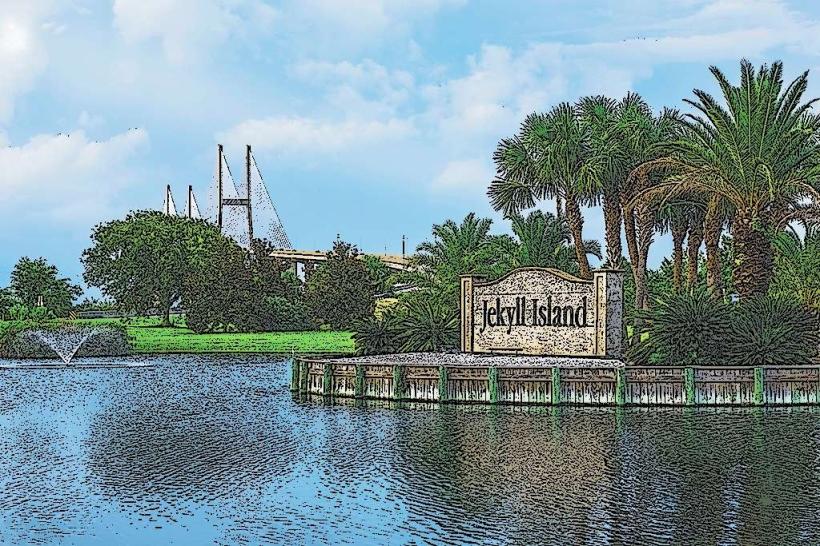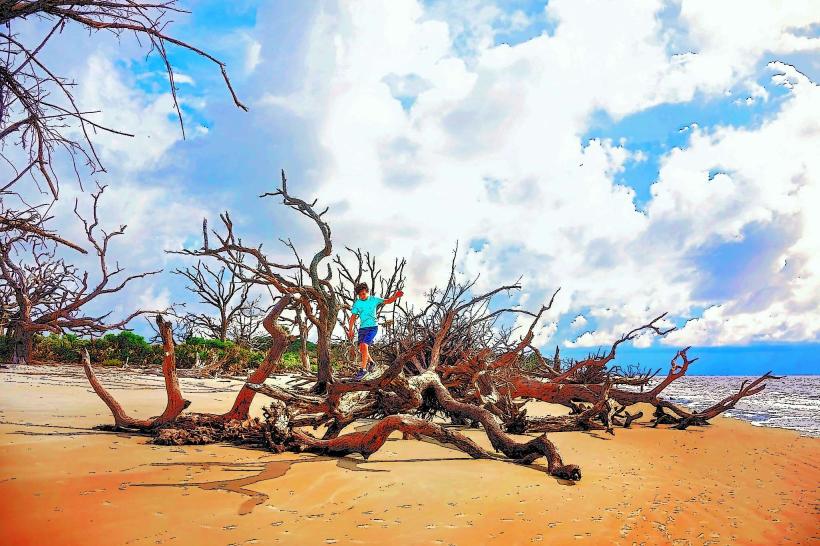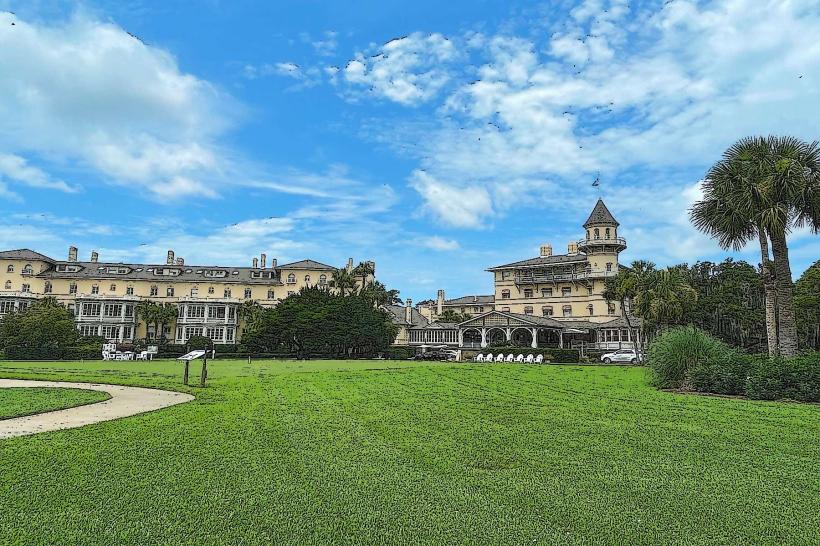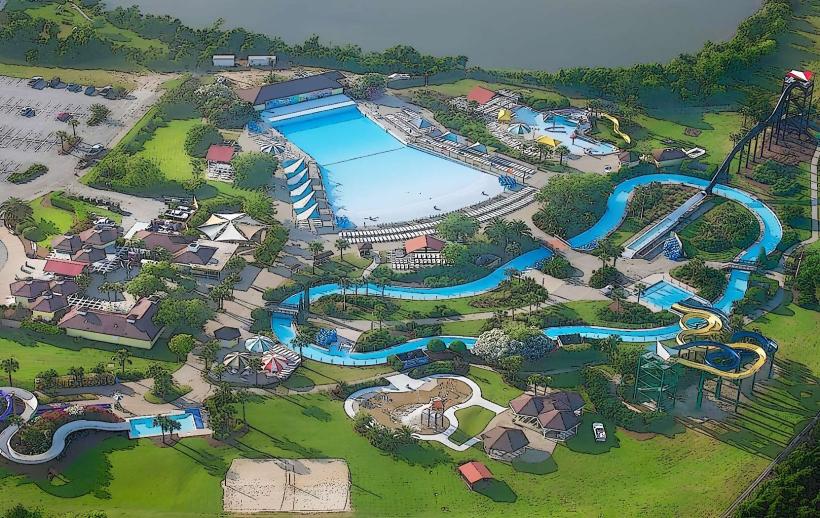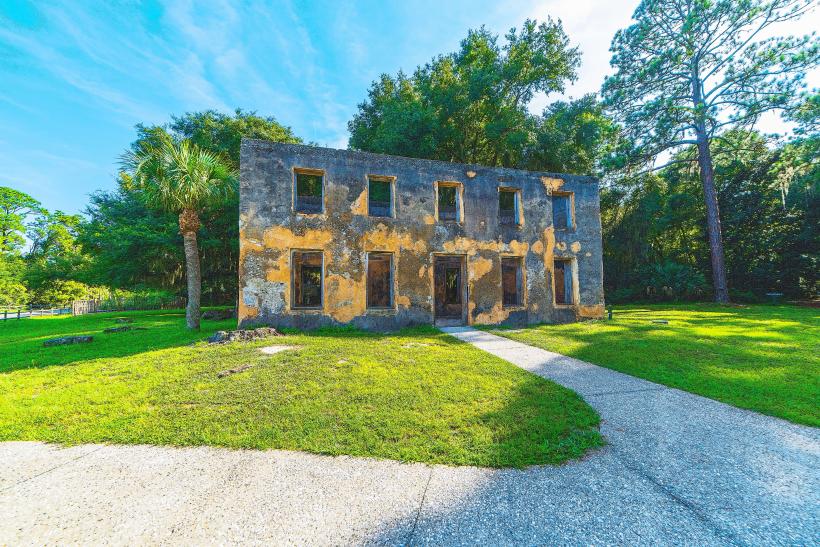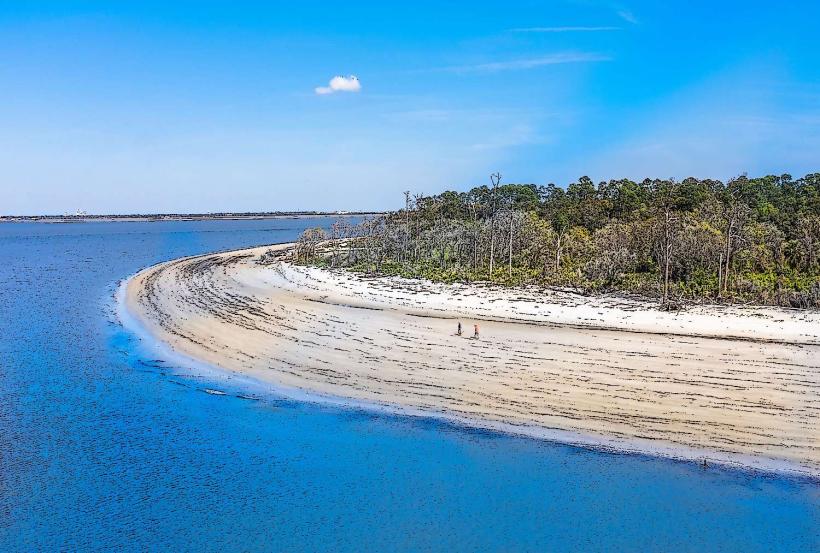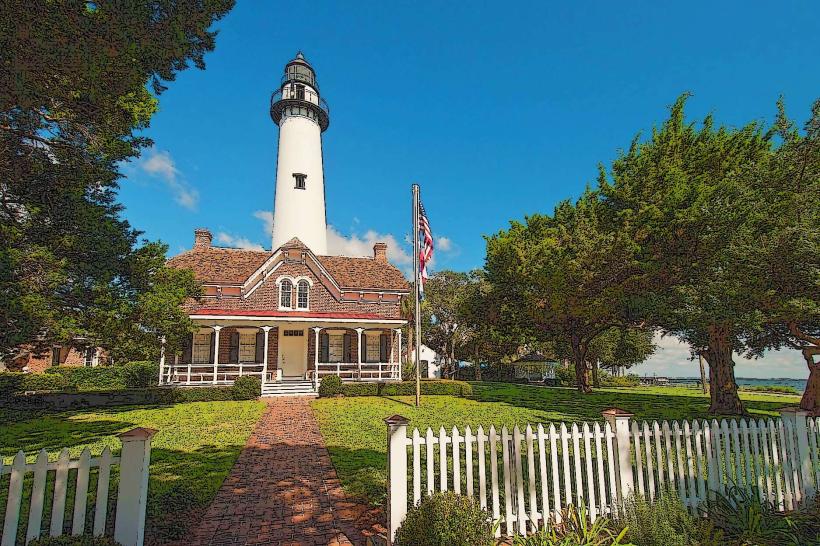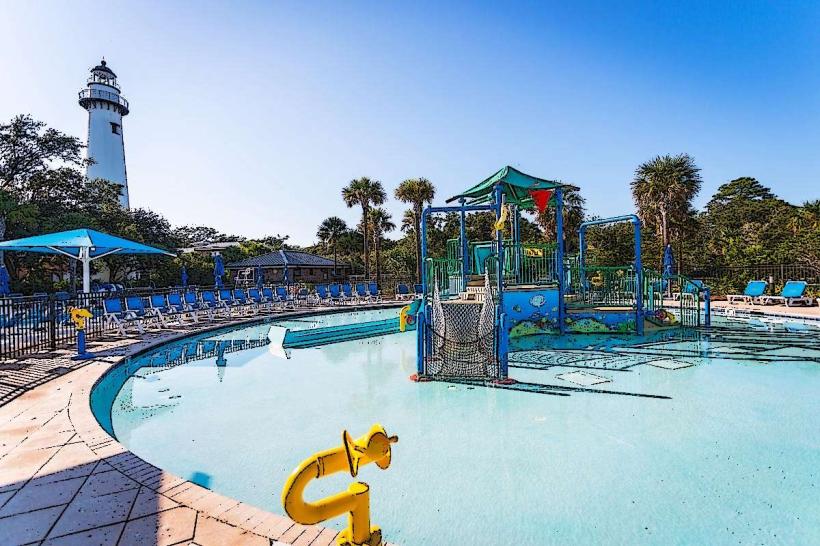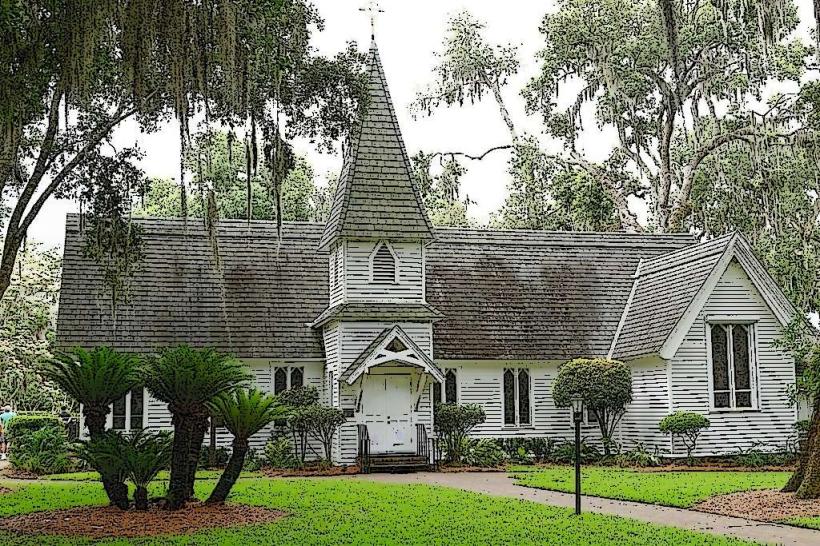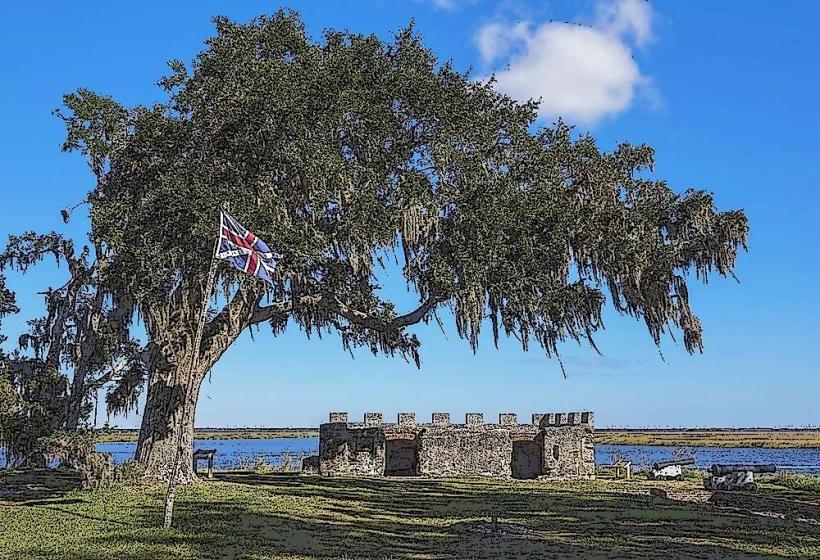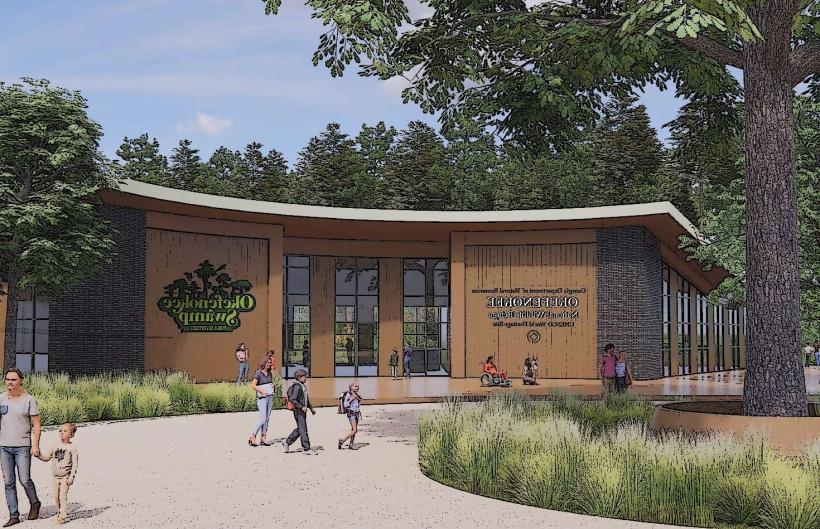Information
Landmark: Georgia Sea Turtle CenterCity: Brunswick
Country: USA Georgia
Continent: North America
Georgia Sea Turtle Center, Brunswick, USA Georgia, North America
The Georgia Sea Turtle Center is an animal rehabilitation facility and educational center located on Jekyll Island, Georgia, within the city of Brunswick.
Visual Characteristics
The center is housed in a 1930s-era building constructed primarily of brick. Its exterior features a light tan color with darker red brick accents around windows and doorways. The building is a single story with a low-pitched roof.
Location & Access Logistics
The Georgia Sea Turtle Center is situated at 214 Stable Road, Jekyll Island, GA 31527. It is approximately 15 miles (24 km) from the Brunswick city center. Access is via US-17 South, turning onto Jekyll Island Causeway. Parking is available in designated lots adjacent to the center. Public transport options directly to the center are limited; visitors typically drive or use island shuttles.
Historical & Ecological Origin
The building originally served as the Jekyll Island Club's stable and carriage house, constructed in the 1930s. It was repurposed and opened as the Georgia Sea Turtle Center in 2007. The center focuses on the rehabilitation of sick and injured sea turtles, primarily loggerhead, green, and Kemp's ridley species, which inhabit the coastal waters of Georgia.
Key Highlights & Activities
Visitors can observe sea turtles undergoing rehabilitation in their recovery tanks. Educational exhibits detail sea turtle biology, conservation efforts, and threats to their populations. The center offers behind-the-scenes tours for an additional fee, providing a closer look at the veterinary care provided. Live feeding demonstrations occur daily at scheduled times.
Infrastructure & Amenities
Restrooms are available on-site. Limited shaded areas are present in the outdoor exhibit spaces. Cell phone signal (4G/5G) is generally reliable within the center. Food vendors are not located directly at the center, but concessions are available at nearby Jekyll Island attractions.
Best Time to Visit
The center is open year-round. Mid-morning (10:00 AM - 11:00 AM) and mid-afternoon (2:00 PM - 3:00 PM) often provide good viewing opportunities as turtles are more active. Weather is most favorable for visiting Jekyll Island from March through May and September through November.
Facts & Legends
A unique aspect of the center's work involves the use of specialized X-ray equipment to diagnose internal injuries in sea turtles, a critical tool for their recovery. The center also participates in a satellite tagging program to track the movements of rehabilitated turtles after their release.
Nearby Landmarks
- Jekyll Island Museum (0.2km West)
- Jekyll Island Club Historic District (0.5km Southwest)
- Driftwood Beach (2.5km North)
- Georgia Sea Turtle Center Gift Shop (Adjacent)

